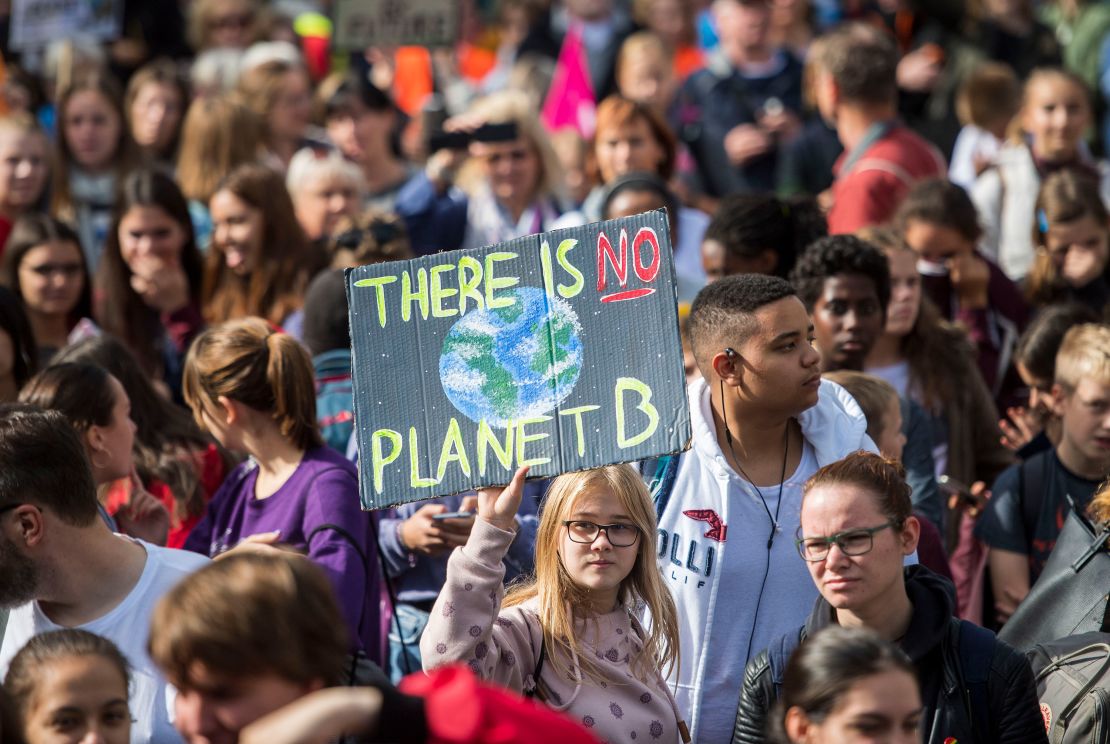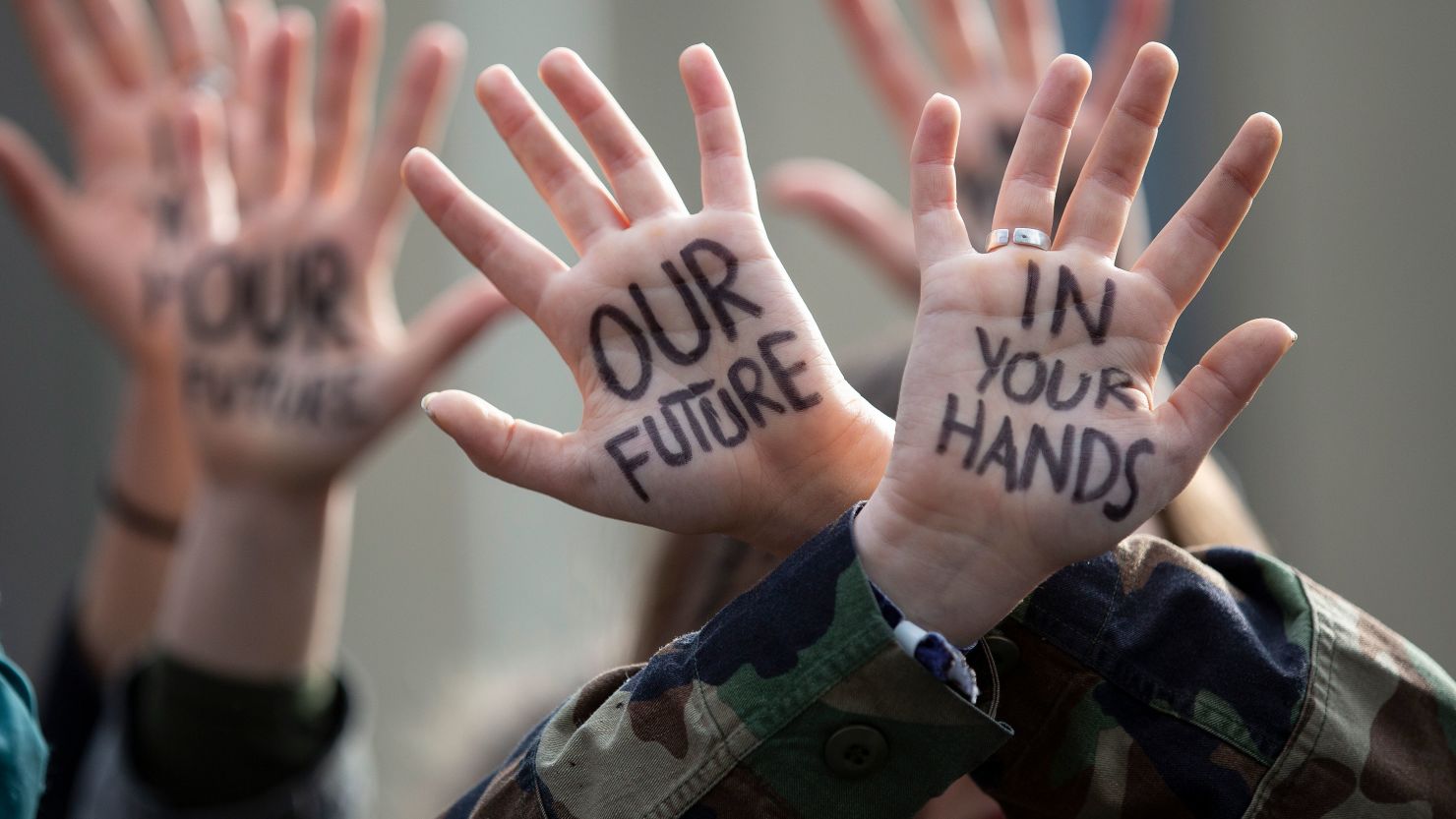Editor’s Note: Britt Wray, PhD is a Human and Planetary Health Fellow at Stanford University and the London School of Hygiene and Tropical Medicine, as well as the author of Gen Dread, a newsletter about coping with the psychological toll of climate change. She is the author of the forthcoming book “Generation Dread: Finding Purpose in the Climate Crisis” (Knopf 2022). The opinions expressed here are hers. Read more opinion on CNN.
With the COP26 climate summit coming up in Glasgow, it is time for more world leaders to heed the existential concerns young people feel and the distrust of governments they harbor by taking bold action. If they don’t, they must be ready to face the steadily worsening mental health of their own youth.

It’s no secret that young people everywhere are worried sick about the climate crisis. Their heavily reported eco- or climate anxiety (now becoming familiar terms to many), have awoken adults to the mental health burden that a warming world puts on our children and youth. Recent research my colleagues and I conducted showed for the first time that this psychological distress is linked to feelings of government betrayal and being lied to by leaders who are failing to take adequate climate action – many while pretending to do otherwise.
Climate anxiety is not a mental health disorder, nor is it a clinical diagnosis. Rather, it is a normal and natural response to a very real civilizational crisis that is unfolding. It marks one’s wakefulness to reality, can spur people to action, and is thereby an adaptive response. However, if not supported, it can cause real suffering, and become overwhelming and debilitating.
In our recent study entitled “Young People’s Voices on Climate Anxiety, Government Betrayal and Moral Injury: A Global Phenomenon,” we surveyed 10,000 people ages 16 to 25 in 10 countries around the world. Nearly half of the global average of respondents said that their thoughts and feelings about climate change negatively affect their daily life and functioning. This includes their ability to eat, concentrate, work, sleep, study, spend time in nature, play, have fun and enjoy relationships.
In short, distress about the climate crisis is disrupting young people’s capacity to just be young. As 23-year-old Skylar Karzhevsky from Somerville, Massachusetts, told me, “Like many others my age, I feel like I experience this ‘apocalypse mentality’ that really burrows itself in my brain and stomach every day. I have trouble envisioning a future beyond a year.”
Our findings show a broad majority of young people surveyed feel that, as we put it, the future is frightening. More than half who participated feel that “humanity is doomed” and that what they most value in life will be destroyed. Over a third said they were hesitant to have children. Zachary Peden, 18, from Tulare, California, put it to me this way: “I get anxious thinking about whether or not I should have children in the future. I don’t want them to have to watch in despair as the world crumbles, burns and floods around them. I already have to, and it’s so demoralizing and depressing.”
A majority of respondents said that governments can’t be trusted and are not doing enough to avoid catastrophe. Almost as many report feeling betrayed by governments, and slightly more feel that governments are dismissing young people’s distress.
This research paints an utterly depressing picture of youth well-being and condemns the adults in power who are supposed to protect it.

The distress caused by climate fears and failed leadership can lead to a grim outlook or even outright hopelessness. As Heidi Shepard, 23, from Moab, Utah described it to me, “climate change [has] narrowed my imagination and stolen my future. All I strive for now is to grow enough food and acquire enough medical and survival skills to sustain myself and others in an increasingly untenable society on a planet that is burning to death.”
It isn’t just that children and young people are particularly tuned in to the climate crisis; they are especially vulnerable to its harms. In August, the UN declared that half of the world’s 2.2 billion children are at “extremely high risk” of climate impacts, threatening their health, education, security and access to essential services.
When it comes to kids’ mental health, a recent study published in Clinical Psychological Science shows that the healthy psychological development of children is already being compromised by the climate crisis. For example, mothers can become traumatized by wildfires, hurricanes and floods while their fetuses are developing in utero. This creates vulnerability for the child who may develop diseases and psychiatric disorders later in life.
Heatwaves, which can be experienced at any age, have been found to disrupt sleep, education and even high school graduation rates. As a child becomes cognitively mature and aware of the climate crisis, the possibility that they will be chronically stressed about it also opens up. Mental health therefore can be shaped by complex interactions between diverse stressors that the climate crisis creates. The authors conclude, “The damage begins before birth and cascades across development, with each unresolved challenge setting traps for the next.”
A different first-of-its-kind study, recently published in “Science,” found that children alive today will face three times as many disasters as their grandparents did if emissions are not drastically curbed. Such intergenerational inequity demands intergenerational solidarity. COP26 is a crucial and symbolic venue for demonstrating this form of care.
At COP, the national initiatives, partnerships and roadmaps to be unveiled must prioritize lowering emissions immediately, not waiting until mid-century, if they are to align with young people’s need for a safe and survivable planet. While seen as politically unfeasible to some leaders, what must be appreciated is that it’s a gamble with life itself. There is not much use in extracting oil from beneath the ground to fuel consumption if our communities above it have become uninhabitable.
The people working in the fossil fuel industry that many politicians profess to care so much about won’t be spared from the unfurling damage. They would be better served by a strategy to get them into good-paying jobs now that don’t require destroying the planet.
Ultimately, we must go much further than performing good grace at these summits. The adults in charge ought to listen closely to what children and young people are saying and prioritize their psychological well-being by enshrining its protection in far-ranging climate and economic policy. The enormous cost to the population’s mental health that will accrue by further delaying action needs be recognized by those in power. Nothing less than the future sanity of our species depends on it.





